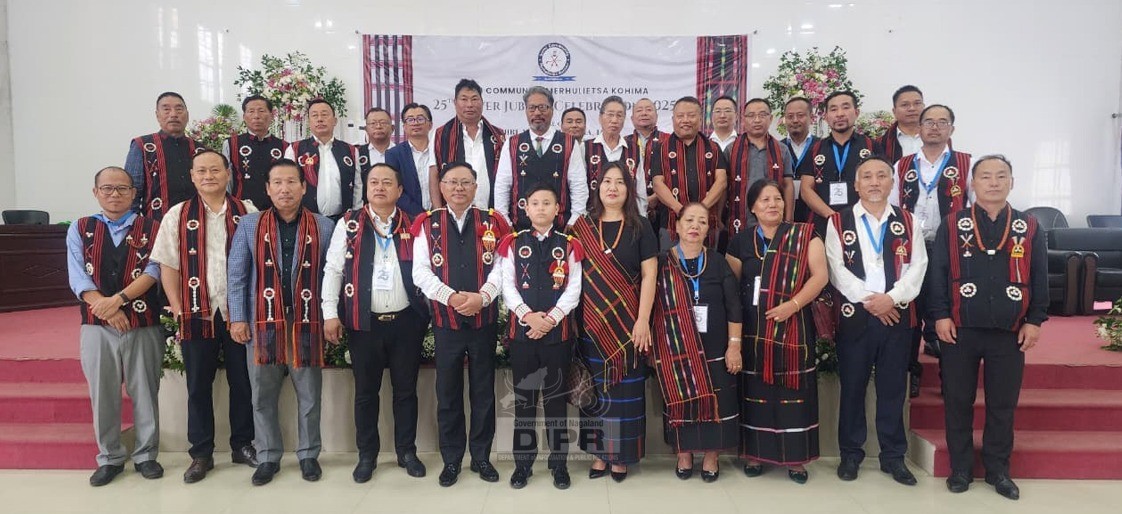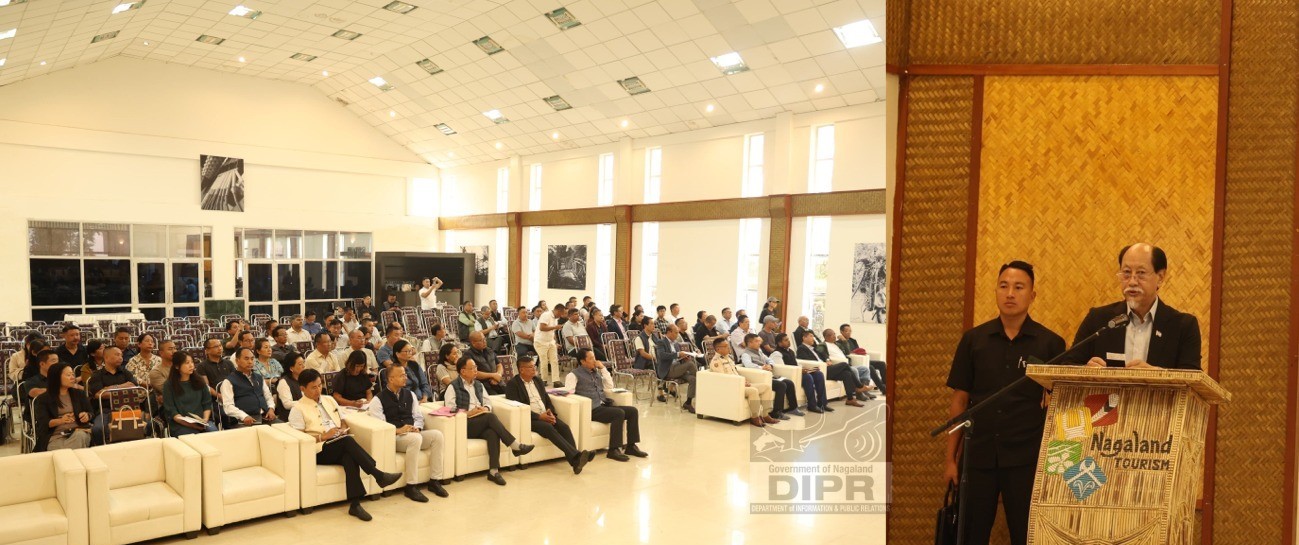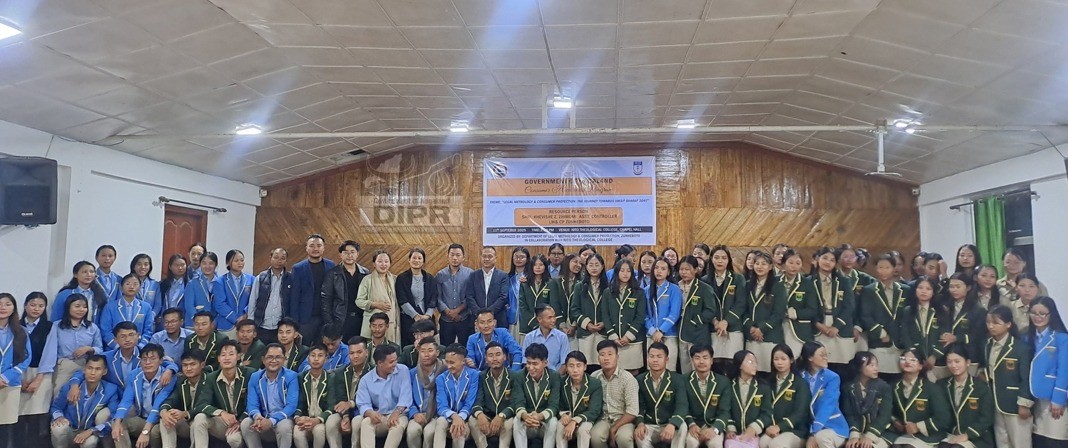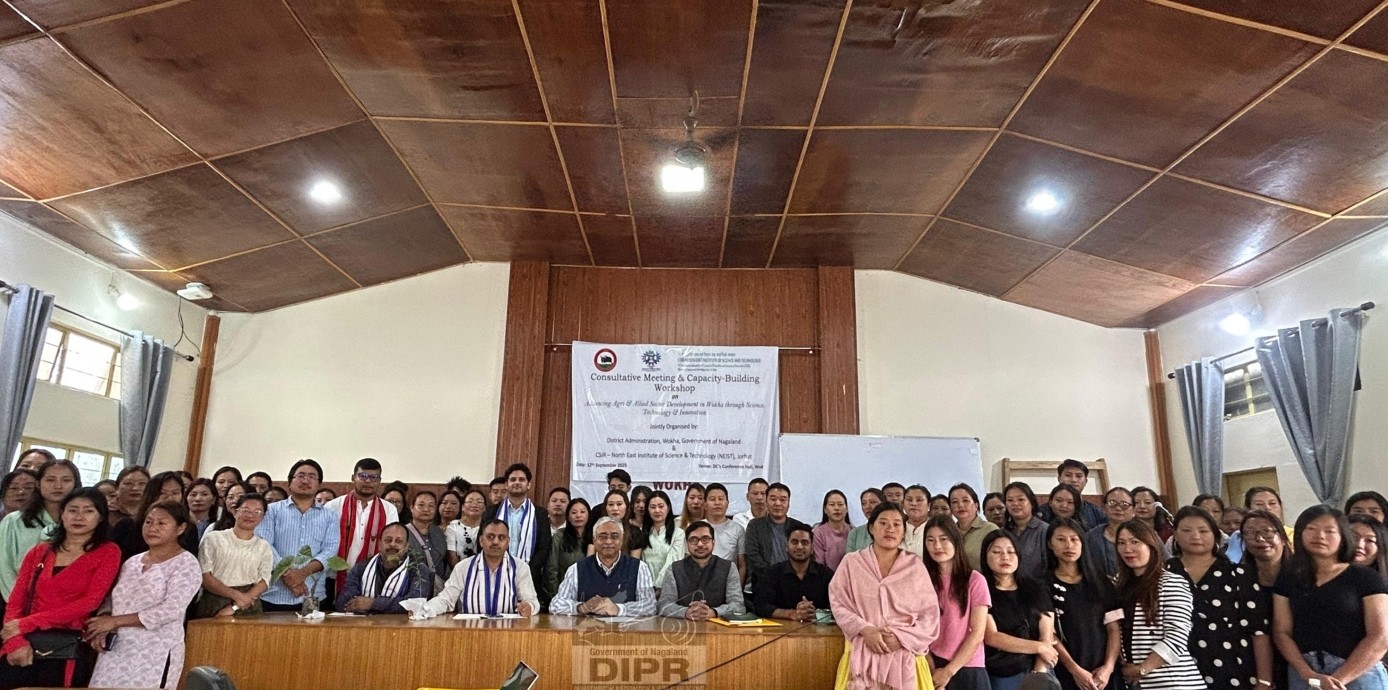Nagaland Regional Eastern Himalayan Naturenomics™ Forum 2021 was held on 1st August, 2021 at Sukhai village of Zunheboto district– bringing together community voices, government officers, SHG groups, farmers and indigenous organizations towards understanding community conservation model in Sukhai, and exploring opportunities for a sustainable future. The theme of the forum was “Understanding the socio-economic conservation models for biodiversity preservation in Community Conserved Areas”. The Nagaland Regional Eastern Himalayan Naturenomics™ Forum has been hosted in partnering with the Tizu Valley Biodiversity Conservation and Livelihood Network (TVBCLN) and The Energy and Resources Institute of India (TERI).
Keeping a note to COVID-19 situation, Balipara Foundation conducted the regional colloquium adhering the SOPs and norms regulated by Nagaland state government, registered by a total 35 participants- including resource persons, community representatives and volunteers.
Sukhai has brought into light the rich biodiversity the village has, and how every effort has been taken towards mobilizing the community members towards preserving the land. Taking the conversation forward, the Chairman of Sukhai CCA and leader to Tizu Valley Biodiversity and Community Livelihood Network (TVBCLN), Mr. Ivan Jimo highlighted upon the indigenous culture and tradition of Sema Naga communities which are interlinked to nature since time immemorial.
“For a conservation model to be successful, as much the indigenous knowledge of the community is essential, the participation and engagement of indigenous women in the decision-making process is an important aspect for effective implementation”, Mr. Zhimo expressed.
The discussion was carried forward by an insightful presentation on “Biodiversity vis- a- vis Shifting Cultivation to Nagaland” by Pikato V. Jimo, the POU of Nagaland Empowerment through People Economic Development (NEPED) and the General Secretary to Sukhai CCA.
Talking about the traditional farming practices once practiced in the Community Conserved Areas across Sukhai and nearby villages, Jimo stated that conservation won’t be successful, until we provide livelihood options. He further went on to say that shifting cultivation does not always degrade the ecology, and it is a far more economically and biologically sustainable way of farming when compared to settled form of agriculture.
Talking on the Article 371A, and land ownership in Nagaland, Chief Conservator of Forest (Environment, Biodiversity & Research), Nagaland, Supongnukshi, IFS stated that forest and ecosystem management in the state involves many stakeholders like, forest department, agricultural department and civil Societies, amongst others.
“As per Forest Survey of India report, 2019, over 75.31 % of total geographical area of Nagaland is under forest cover. Open Forest category of forest lands largely fall under the jhum fallow lands”, he informed.
The Nagaland regional EHNF designed to witness insightful deliberations in context to indigenous people, forest management and traditional practices witnessed informative deliberations and presentations from an eminent panel of other speakers like, Dr Rakesh Kumar Chaursia- Head & Sr Scientist to Krishi Vigyan Kendra (KVK) Nagaland, Heirang Lungalang- Chairman to the Nagaland Community Conservation Area's Forum (NCCAF) and Rokongulie Meyase - Professional bird guide and tour operator from Khonoma CCA.
The grassroot colloquium was strategically designed and orchestrated to focus and explore indigenous perspectives on rural futures context such as biodiversity conservation, community led habitat restoration, harmonic co-existence with nature, grassroots climate action, resilient livelihood through sustainable agricultural practices, traditional handloom and handicrafts. It tried to delve into interesting case studies of the fringe communities in context to indigenous forest conservation, governance and management through Naga traditional customary laws and practices.
Formulating the regional Nagaland chapter, Balipara Foundation in coming days envisions to work closely with the indigenous communities of Nagaland through the its flagship project Rural Futures and Naturenomics™ , to ensure a sustainable future for the state and celebrate the indigenous conservationists as the custodians of the natural landscapes - protecting and preserving their lands. The future initiatives that Balipara Foundation looks forwards to incorporate and implement are - community based natural resource management, biodiversity conservation, documentation of traditional knowledge, and enhancing livelihoods. The Forum believes that coordinated actions with the community leaders will help us bring ecology back to economy, and through cooperative leadership, actions can be taken for creating sustainable and resilient future.
The Eastern Himalayan Naturenomics™ Forum believes that coordinated actions with the community leaders will help us bring ecology back to economy, and through cooperative leadership, actions can be taken for creating sustainable and resilient future.
The forum was organized by Balipara Foundation, a non-profit organization nestled in Assam in the Eastern Himalayas. Established in 2007 Balipara Foundation focuses on community development and conservation of natural resources in the region through the concepts of Naturenomics™ and Rural Futures.
The Eastern Himalayan Naturenomics™ Forum was launched in 2013 to find solutions leading to important lessons for the communities and others, at all levels, from local to global. Following success of the Sikkim and Manipur Forum, the regional chapter will travel to different parts of the Eastern Himalayas this year and organize community specific discussions.
(IA, Zunheboto)






